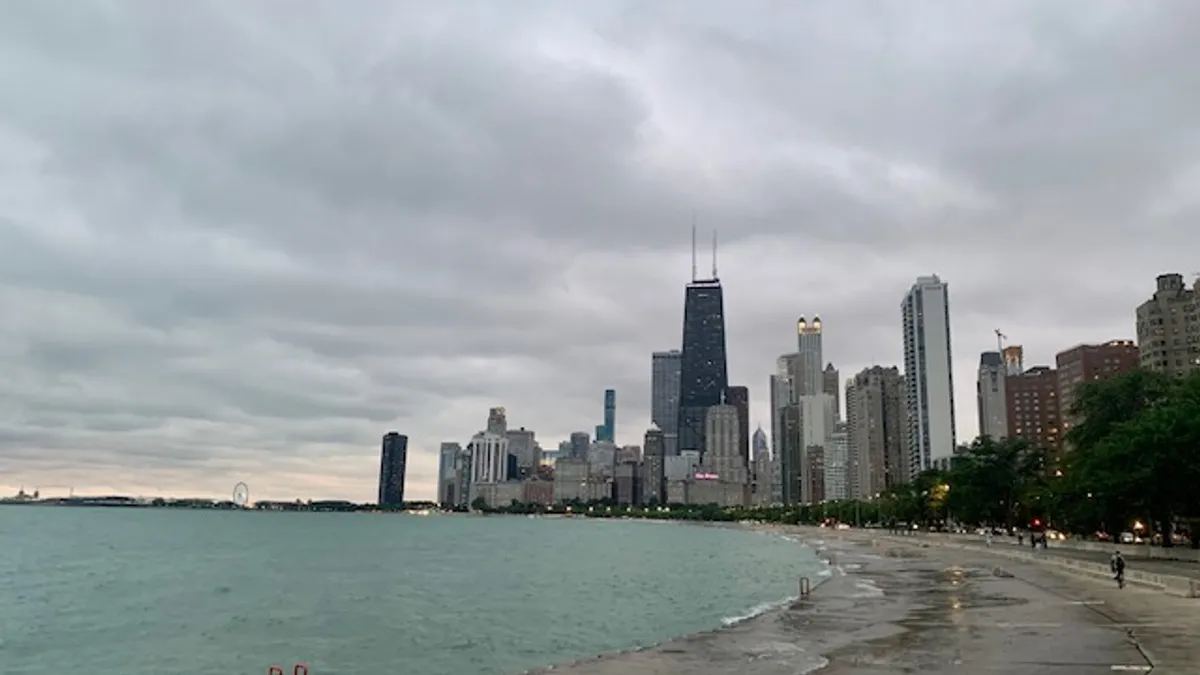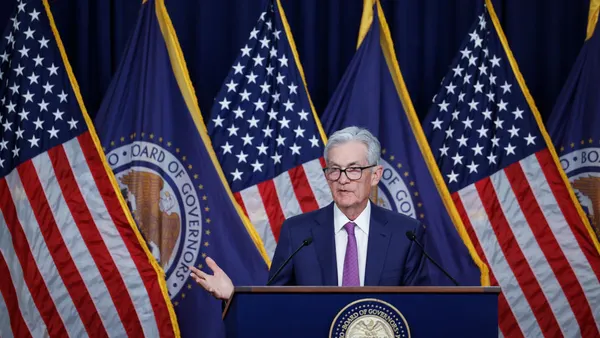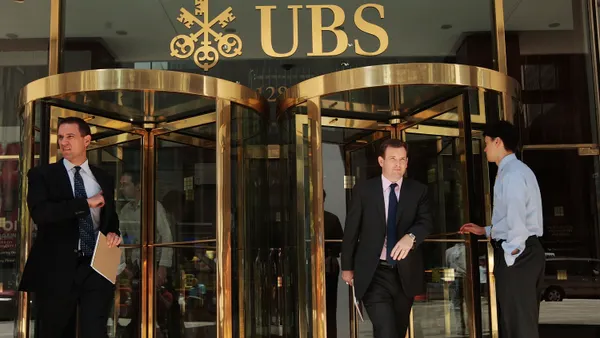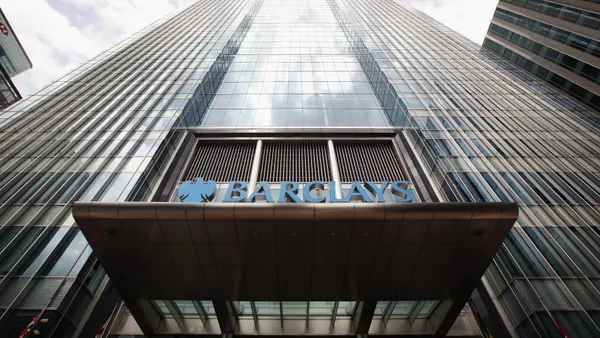Dive Brief:
- Charles Evans, president of the Federal Reserve Bank of Chicago, will retire early next year, the central bank satellite announced Thursday.
- The move is not a surprise. Regional Fed presidents face mandatory retirement at age 65 — and Evans turns 65 in January. He had previously said he would step down at that point.
- A committee made up of nonbanking members of the Chicago Fed’s board of directors “is conducting a nationwide search to identify a broad, diverse and highly qualified pool of candidates,” the bank said. It has retained Diversified Search Group, an executive search firm, to help.
Dive Insight:
Evans ranks as the Fed’s longest-serving regional president, having assumed the role in September 2007. But his career at the Chicago Fed stretches back to 1991. Before taking the bank’s top spot, Evans served as the Chicago Fed’s director of research and senior vice president.
“Charlie has been an influential and insightful voice at the monetary policy making table for nearly 15 years,” Fed Chair Jerome Powell said in a statement. “Charlie consistently brings data-driven analysis, unfailing collegiality, and a keen interest in seeking out differing views. He is an example of the very best in public service.”
The shuffling of leadership at the Fed and its regional outposts has come under a more watchful eye over the past few months. Two regional Fed presidents — in Dallas and Boston — resigned last fall, after financial disclosure forms revealed they traded stocks in 2020 while also helping to set monetary policy.
The activity met the Fed’s code of ethics at the time but spurred the central bank to issue new rules barring its board governors, 12 regional presidents and senior staff from buying individual stocks, holding investments in individual bonds or agency-backed securities, or entering into derivatives. Policymakers and senior staff, under the new rules, would have to provide 45 days’ notice before buying or selling any allowed securities, must obtain approval for those transactions, and must hold any investments for at least a year, the Fed said. The central bank also prohibited purchases or sales “during periods of heightened financial market stress.”
A third official, the Fed’s now-former vice chair, Richard Clarida, resigned in January, when disclosure forms detailed trading activity in the days leading up to the COVID-19 pandemic declaration.
Among his accomplishments, Evans helped create a "dot plot" the Federal Open Market Committee (FOMC) publishes, showing the monetary policy maneuvers participants see as appropriate.
Evans, toward the beginning of the last decade, also urged the Fed to hold interest rates near zero until unemployment falls below 6.5% or inflation rises above 2.5%. The central bank adopted those targets in 2012 but later removed the explicit thresholds from its guidance, CNBC reported.
“It has been an honor to serve as a president of the Chicago Fed and as a member of the Federal Open Market Committee for the last 14 years,” Evans said in a statement Thursday. “I have been privileged to work with talented, dedicated and mission-driven colleagues who are singularly focused on serving the public interest, the Seventh District and our nation. I am immensely proud of the work our bank has accomplished."
Evans is one of 11 Fed regional presidents who hold rotating votes on the FOMC. Four of the regional presidents vote each year, along with the New York Fed president and the board of governors. The Chicago Fed’s president has a vote on the committee next year.
At least one other regional Fed president, Esther George of the Kansas City Fed, is slated to age out of her position in 2023, according to The Wall Street Journal.
The Boston Fed in February chose Susan Collins, a University of Michigan economist, to lead that central bank satellite beginning July 1.
The Fed’s board of governors, meanwhile, still has several open posts — but perhaps not for long. The full Senate is expected to vote in the coming weeks on Powell’s renomination as chair, Fed Gov. Lael Brainard’s nod for vice chair, and economists Philip Jefferson and Lisa Cook to fill vacant seats. President Joe Biden last week announced his intention to nominate former Treasury Department official Michael Barr for the central bank board’s final open seat.














